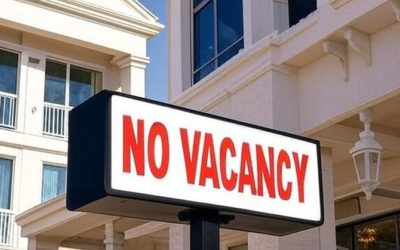Timeshare maintenance fees are already out of control, and they are about to see a significant increase in 2023
ECC’s prediction
At the beginning of 2022, our experts predicted in several articles that timeshare companies would soon start increasing their annual fees.
It has been common practice for resorts to take advantage of difficult conditions to increase profits, even if it means their members suffer.
An example of this was when resorts charged full fees throughout the pandemic, even though staff wages were covered by government furlough schemes.
This was on top of the fact that many other costs, like cleaning and electricity, had been reduced to almost nothing.
Many resorts faced accusations of profiteering while at the same time other travel-related businesses were doing all they could to be fair to their customers.
Warning from Macdonald Resorts
A few weeks ago, an ECC client contacted us with the distressing news that her Macdonald Resorts, based in Scotland, was planning to increase the annual maintenance fees by 30%.
Here is a short excerpt from the email:

Macdonald warns that its managed clubs will also see similar increases across the UK and Spain.
More to come?
Many industry experts suggest that while Macdonald Resorts are one of the first to raise fees, it is unlikely to be the last.
As Andrew Cooper, CEO of European Consumer Claims (ECC), explains: “Timeshare companies used to have two separate income sources. They used to have high pressure sales and marketing operations generating vast amounts of revenue from signing up holidaymakers to their clubs. Almost all of that revenue was profit and timeshare companies got very rich in the 80s, 90s and early part of the 21st century.
“The second income stream was the maintenance fees. Ostensibly these were to keep the resorts in pristine condition, but members were charged way more than what was required for maintenance. There was seldom any limit written into timeshare contracts regarding how much the maintenance could increase by annually.”
Now that Timeshare sales have dried up due to the product being dated, resorts are being more blatant with their maintenance fee increases. This makes it a bitter pill to swallow for members now that it often cheaper to book a week in a resort on Booking.com.
Resorts use the “the flimsiest of pretexts,”to justify fee increases, states Mr Cooper.
“Right now, for example, general inflation is running at around 10%. This is already incredibly high, but Macdonald Resorts have taken the opportunity to increase their fees by an astounding three times general inflation.”
With the same pressures on other timeshare resorts and the industry having similar attitudes, onlookers expect Macdonald Resorts to just be the first of many.
What can be done?
One of the things about timeshare contracts is that they are deliberately designed to be almost impossible to get out of.
It’s easy to be taken in by the luxury presentation while on holiday enjoying the sun and the sand in Spain. But many people did not notice that there is no contractual restriction on the percentage or amount that the resort can increase its annual fees.
Resorts typically want to increase fees annually by as much as they will be likely to get away with – without provoking a member revolt.
As long as escalating maintenance fees have been introduced gradually, timeshare customers have tolerated them.
But if you have decided that you don’t want to put up with your annual maintenance fee situation any longer, and that you would prefer to be free of the liability, there is help available.
It requires expert help, but most timeshare contracts can actually be relinquished.
Timeshare owners looking for help come to European Consumer Claims because we are the most successful, experienced, and trustworthy when it comes to timeshare release and claims.
Contact our team to receive a free, no-obligation consultation on relinquishing your timeshare contract or to find out about making a compensation claim.


